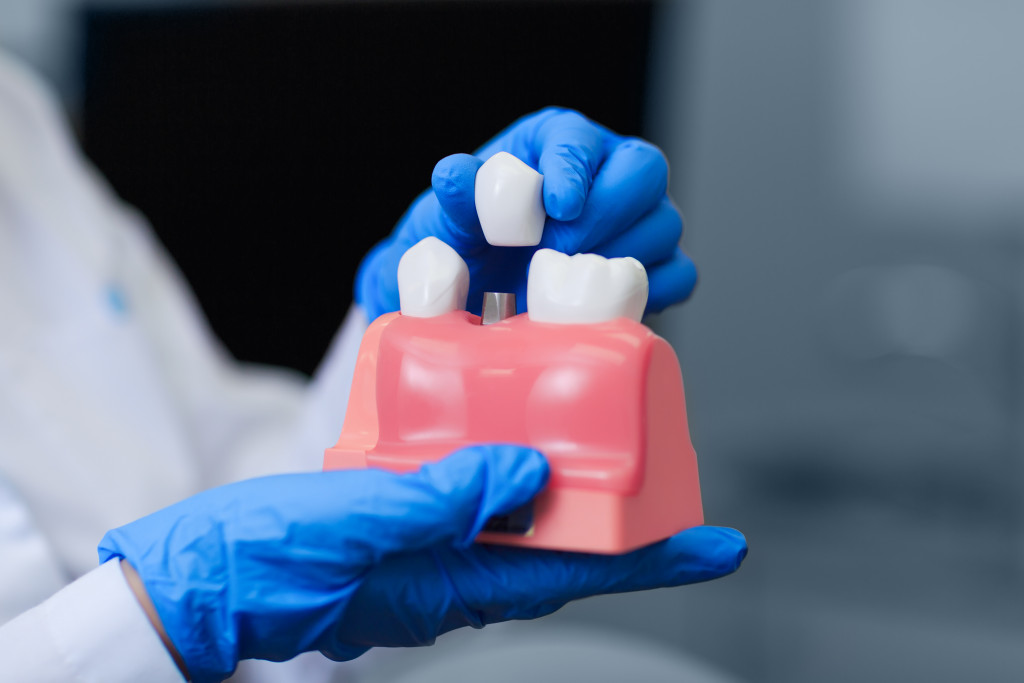As people grow older, they often experience various physical and emotional changes. For instance, many older adults find that they are not as physically active as they once were and may have to adjust to living with medical conditions they did not have before. Additionally, many older adults are more prone to feeling sad or lonely, especially if they are no longer married or have lost their friends and family members.
Age also affects physical health. For example, as people age, they may start to experience more aches and pains, and they may not be able to recover from injuries as quickly as they once could. Additionally, older adults are more likely to develop chronic conditions such as heart disease, arthritis, and diabetes. Additionally, age can also affect their oral health.
Oral Health and Age
It’s estimated that most Americans lose their teeth when they reach 50. One reason is that the older a person gets, the more likely they are to develop gum disease. Gum disease is an infection of the gums that can cause them to become inflamed and sore. It often leads to tooth loss.
Older adults are also more likely to develop dry mouth, a condition where the mouth does not produce enough saliva. This can be caused by certain medications, medical conditions, or aging. A dry mouth can lead to an increased risk of tooth decay and other oral health problems.
To help prevent these age-related oral health problems, older adults must practice good oral hygiene habits such as brushing their teeth twice a day and flossing daily. Additionally, they should visit their dentist regularly for checkups and cleanings.
Older adults may also need dental services they did not need when they were younger. Here are five dental services that older adults may need:

Implants
As stated earlier, many older adults lose their teeth as they age. This can make eating and speaking difficult. Additionally, it can also affect a person’s appearance. Tooth implants are artificial teeth surgically placed into the jawbone to replace missing teeth. They look and function just like natural teeth.
These implants are made of metal and are very strong. They can last a lifetime with proper care. On average, they cost around $3,000 to $4,000 per tooth.
Dentures
Another option for replacing missing teeth is dentures. Dentures are false teeth that are worn over the gums. They are usually made of plastic or porcelain and can be removed when necessary.
Dentures can help improve a person’s appearance and make eating and speaking easier. However, they require special care to keep them clean and in good condition. Additionally, they may not fit as well as natural teeth and may need to be replaced over time.
Dentures cost around $1,000 to $3,000 per set. They may be cheaper than getting an implant, but they are less reliable, inconvenient, and can lead to bacterial infections if not taken care of properly.
Crowns
Crowns are caps that are placed over damaged or decayed teeth. They can also be used to support dental implants or bridges. Crowns are usually made of porcelain or ceramic and can last many years with proper care.
Crowns are an effective way to restore a damaged tooth, but they are not used to replace an entire tooth. In addition, they cost around $500 to $1,000 per damaged tooth.
Bridges
Bridges are false teeth used to fill in the gaps created by missing teeth. They are made of metal, porcelain, or ceramic and are held in place by dental crowns or implants. Bridges can help improve a person’s appearance and make eating and speaking easier.
Like crowns, bridges are an effective way to restore a person’s smile. However, they are also quite expensive, costing around $500 to $1,000 per tooth.
Oral Surgery
Sometimes, older adults may need oral surgery to treat an oral health problem. Oral surgery is a type of surgery that is performed on the mouth and sometimes the jaws. For example, it can remove wisdom teeth, treat TMJ, or repair cleft lip and palate.
Depending on the procedure, oral surgery can cost around $1,000 to $10,000. Additionally, it often requires a lengthy recovery time. Therefore, you must take the necessary precautions before you undergo any surgery. These precautions include getting a second opinion from another dentist and asking about the risks and benefits of the procedure.
These are just a few dental services that older adults may need as they age. However, many other services available can help improve their oral health. These services are a great choice if you’re experiencing oral problems due to aging.

